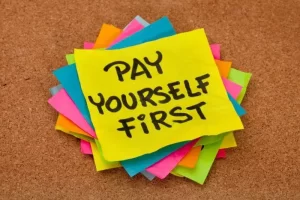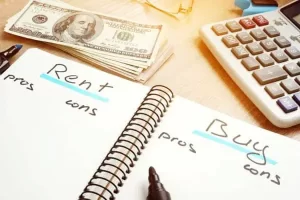Your credit score affects many areas of your life. Not only does it determine which loan program you can use, but it may also affect your ability to rent, get a job, or even get insurance. It’s worth the time and effort to take steps to fix your credit score faster.
Keep reading for the top tips on how you too can maximize your credit scores.
What is a Credit score
According to Wikipedia:
A credit score is a numerical expression based on a level analysis of a person’s credit files, to represent the creditworthiness of an individual. A credit score is primarily based on a credit report, information typically sourced from credit bureaus.
Check Your Credit Score for Free?
Did you know that you may have free access to your credit score? There’s really no excuse not to know what your credit looks like. Knowing what your credit score is will help you understand the steps you must take to improve your situation or keep it as it is. Learn how to check your credit score free online to have continual access to your score.
Check Free Credit Scores in US
Check Free Free Credit Scores in Canada
What is a Good Credit Score?
By garagestock/Shutterstock.com
Credit scores range from 350 – 800, so what do lenders consider good? It depends on the situation, but overall the following credit score ranges prevail:
- 300 – 579 – Very Poor Credit
- 580 – 669 – Fair Credit
- 670 – 739 – Good Credit
- 740 – 799 – Very Good Credit
- 800 and above – Excellent credit
Not too many people have a credit score over 800, as it’s almost perfect credit. If you do, though, many doors will open for you. On average, lenders consider any credit score over 700 great. This makes most borrowers eligible for the lowest interest rates and most competitive loan terms.
The average borrower, however, has a credit score of 600 – 750. While you’ll get the best interest rates and terms with higher credit scores, there are many loan programs available even for those with credit scores as low as 600. The key is to have compensating factors. If you have a low credit score, give lenders something else to reassure them that you are a good risk. Some of the most common compensating factors include:
• Large down payment – The more money you put down on a home, the less risk you pose. Lenders like you to invest your own money. It makes you more likely to make your mortgage payments on time.
• Low debt ratio – Lenders compare your gross monthly income to your monthly debts. The fewer monthly debts you have outstanding and the higher your monthly gross income, the more likely you are to get a home loan with attractive terms.
• Stable employment – Lenders like to know that you have what it takes to make your mortgage payments on time. If you’ve been at your job for a long time, it can serve as a compensating factor because it shows that you are stable and reliable.
Simple Steps to Raise Your Credit Score Faster?

Copyright: Image by StockUnlimited
Your credit score is a calculation of different aspects of your credit history. The best way to raise your credit score faster is to improve your payment habits and credit history. Use the following tips to maximize your credit score.
• Dispute any mistakes that you find on your credit report after checking it with one of the above sources right away. Dispute the error with the reporting credit bureau as well as the creditor that reported the information. It can take 30 days or longer to get an answer, so act fast once you find the error.
• Make sure you are the primary user on your accounts. You get the most points on your credit score (for accounts with a good history) if you are the primary user rather than a co-signer or additional user. Of course, if that’s your only option since you have a low credit score, use the time to improve your credit score while being an authorized user on another account.
• Open a secured credit card account. If you can’t get an unsecured credit card start with a secured card. Your credit line is equal to the deposit you put down on the card. If you fail to make your payments, the credit card company will keep your security deposit. If you make your payments on time, you receive your security deposit back when you close the card.
• Ask for higher credit limits. If you are near the maximum limit of your credit line, ask for a credit line increase. This will decrease your utilization rate or the amount of credit you have outstanding compared to the credit line. The higher your credit limit and the lower your balance, the better your credit score becomes.
• Pay down your credit card quickly. If you can, make credit card payments twice a month rather than once. This way you pay more than the minimum amount due. You show creditors that you are financially responsible and you lower your debt at the same time.
• Keep all credit cards open. Even if you don’t use your old credit cards, keep them open. If you can’t stand the temptation of unused credit cards, lock them up or give them to someone you can trust to keep them away from you. Keeping the cards open increases your credit age, which helps increase your credit score.
• Pay your bills on time. Any bill that you pay more than 30 days late will hurt your credit score. If you do fall behind, catch up on your payments as quickly as you can.
• Diversify your credit. Don’t carry all credit cards – that poses a high risk to future lenders. Instead, diversify your credit by carrying revolving debt (credit cards) as well as personal loans and a mortgage. Showing that you can manage all types of credit, paying the bills on time will help improve and fix your credit score.
• Set up monthly payments to come out automaticly. Don’t risk paying your bills late. Take advantage of automatic payment services that take the payment on or before the due date. You’ll avoid late fees and damaging your credit.
• If you are rebuilding credit, keep a small balance on your credit cards. Slowly pay the balance off, but don’t pay it in full right upfront. Your credit score will increase just by building a credit history with a low balance.
• Use credit cards responsibly. Don’t go overboard with your charging. Keep your credit balances at 30% or less of the credit line for the best effect on your credit score.
• Avoid hard inquiries. Every time you apply for new credit, it shows on your credit report and it hits your credit score for around five points. If you have multiple inquiries in a short amount of time, it can drag your credit score down.
Easy Steps to Fix Your Credit Score Fast(After Being Sent to Collections)
Once you are so late that creditors send your account to collections, you’ll have some work to do to rebuild and fix your credit score. Future lenders may not want to give you new credit for fear that you’ll default on their debt too. The following steps may help you raise and fix your credit score back up after being sent to collections.
Apply for a secured credit card. Use the new credit card often. Make sure you pay the balance off so that you can keep reusing it to show your new, good habits. If you have no credit score or your score is really low, keep a small balance on the card that you carry over from month to month, but keep paying your payments on time.
Ask to be an authorized user on someone else’s credit card. Obviously, this needs to be someone you are close with, such as a family member. If they pay their bills on time and don’t overextend their credit, their good habits will reflect on your credit score, helping it to improve.
Settle With Your Debtors. Don’t shy away from debtors, if they call to chat with them and arrange a payment plan. Since your accounts won’t be sent to collections if you cooperate, this will lessen the damage to your credit score. Once you finish making your payments you will be on your way to fix your credit score.
Consolidate all debts into a single loan. If you owe more than one lender apply for a debt consolidation loan. This will reduce your monthly principal and interest payment amount. Make sure this is done earlier in the process before your credit score deteriorates.
Don’t Close Accounts! If you settle with debtors and eventually make full payment; accounts reflect that they were closed after repayments with a zero balance. This does not blemish your credit history and helps fix your credit score faster.
Why Excellent Credit Scores Matter
Are you aware of the many ways that an excellent credit score can help you? Your credit score is like your ‘grade’ in life. It lets lenders know how financially responsible you are with your loans and credit cards. An excellent credit score can:
• Make it easier to qualify for a mortgage. Even though there are many loan programs out there today, some of which cater to low credit scores, you’ll get the most favorable terms and lowest costs when you have a great credit score. Purchasing a house is one of the largest investments you’ll make in your lifetime. You want a loan that is affordable and has attractive terms to make it the most affordable.
• Make it easier to qualify for a car loan. Car dealers and banks want a good credit history before they’ll give you money to buy a car. Cars depreciate in value so it is a risky investment for lenders to give you money to buy a car. Without an excellent credit score, expect high-interest rates and fees when you borrow money to buy a car.
• Starting a business is easier. Starting a business costs a lot of money. Most people need a loan to get them started. Many even need loans once they are up and running just to keep operations going. Banks want to see good personal credit scores before they’ll loan you money for your business. The higher your credit score is the more money you can borrow and the better terms that you’ll receive.
• You may live in a better area. You may be able to afford a nicer home in a nicer area if you have good credit. If you have bad credit, you are limited on how much money you can borrow and you often get higher interest rates as a result, which typically limits how much loan you can afford.
• Easier to get a job. Yes, many employers check your credit before giving you a job. This is especially true for jobs that involve money. Employers want to know that you are trustworthy and your credit score helps them see that. If you have a low credit score with late payments, lots of inquiries, and overextended credit it shows that you don’t make the wisest decisions and it could cost you a job.
• You may need high credit scores to get utilities. When you buy a house, you have to set up new utility accounts. Many providers check your credit before accepting you as a new customer. If you have a low credit score, they often require large security deposits before making you a customer.
• Bad credit can ruin your health. Stress is a real health threat. When you have bad credit it’s stressful on you, knowing that you can’t get the money you need, especially in emergencies. Keeping a good credit score helps you get the money you need and live a stress-free life. If you have bad credit explore ways to fix your credit score as it will reduce risk to lenders.
• Good credit may qualify you for a lower mortgage rate. Lenders use what they call risk-based pricing. They determine your interest rate based on your likelihood of defaulting on the mortgage. The higher your credit score is, the lower the interest rate lenders may charge you. As an added benefit, they may even charge you lower closing costs, saving you even more money on your loan.
Conclusion
Your credit scores say a lot about you. Lenders look closely at your credit history and the score itself to determine if you qualify for a mortgage. Employers, insurance and utility companies also use your credit score to determine your level of financial responsibility. The best thing you can do is to know the best way to improve your credit score and keep it there. If you have issues, try to fix your credit score then bounce back as quickly as possible. Your credit score changes on a daily basis, so there’s always room for improvement even if you slipped up now and again.
I hope to see you come back to my awesome blog and join the Investadisor Tribe. My goal is to help millions of people to be financially better off.
You may also like the following posts:
- 15 Proven Strategies To Pay Off Your Credit Card Debt Fast
- A Simple Guide to Credit Report vs Credit Score explained
- 8 Simple Tips to Fix Your Credit Score Fast
- Insanely Easy Ways To Get A Free Credit Report
- Drowning In Debt: The Definitive Guide To Debt Management & Paying Debt Off
- How does Consumer Credit Counseling Services Help to Tackle Credit Problems
- The Practical Guide to Purchasing Your First Investment Property
- Renting vs. Buying a House Debate: What’s Best For You?
Let me know your thoughts in the comments below!!
PIN ME

































11 thoughts on “8 Simple Tips to Fix Your Credit Score Fast”
These are really great tips. I thought I had heard about keeping credit card open even if you don’t use them but it’s reassuring to see that confirmed. Thanks for the advice.
Hey Jen, credit history contributes to about 20% of the overall score. So keep your credit card open even if you hardly use it to preserve your score.
Great advice, a lot of helpful information. Learned something new today!
Awesome.Glad you’ve learned something new Ashley.
Marvelous, what a weblog it is! This website presents helpful facts to us, keep it up.
Much appreciate
Pingback: A Simple Guide to Credit Report vs Credit Score explained - Investadisor
Pingback: How does Consumer Credit Counseling Services Help to Tackle Credit Problems - Investadisor
Pingback: A Super Simple Beginner's Guide to Financial Literacy and Why Its Important - Investadisor
Pingback: 14 Best Financial Literacy Books by Black Authors - Investadisor
Pingback: Credit Karma vs Borrowell - Key Differences? - Investadisor